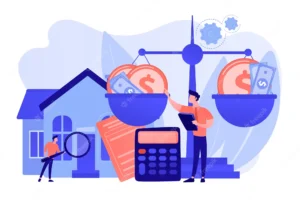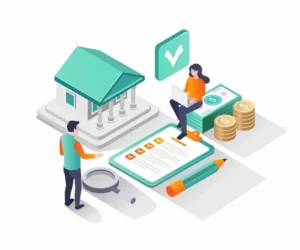Navigating Financial Hardship: Assistance Programs and Expert Advice for Loan Repayment

Introduction. In times of financial hardship, repaying loans can be a daunting challenge. This article provides guidance on assistance programs and expert advice available to individuals facing difficulties with loan repayments. Understanding the signs of financial distress and knowing where to seek help can make a significant difference in managing financial obligations.
Contents
Understanding Financial Hardship
1. Recognizing Signs of Financial Hardship
Financial hardship manifests in various ways, such as missed payments, increasing debt, or reduced income. Recognizing these signs early is crucial for taking proactive measures to address the issue.
2. Types of Loans Affected
Financial difficulties can impact various types of loans, including student loans, mortgages, and personal loans. A look at the prevalence of loan-related financial stress underscores the significance of the issue.
Seeking Assistance Programs
3. Government Assistance Programs
Government initiatives often include loan deferment, forbearance options, or income-driven repayment plans. Eligibility criteria and application processes vary but can provide significant relief to borrowers.
4. Non-Profit Organizations
Non-profit organizations offer valuable services, such as debt counseling, financial education, and negotiation with creditors. These organizations play a pivotal role in assisting individuals in financial distress.
5. Financial Institutions
Banks and lenders may have hardship programs in place. It’s essential for borrowers to reach out to their lenders early to discuss available options, which may include temporary interest rate reductions or modified repayment plans.
Expert Advice and Guidance
6. Credit Counselors
Credit counselors create debt management plans tailored to borrowers’ financial situations. They also negotiate with creditors to reduce interest rates or waive fees, helping borrowers regain financial stability.
7. Financial Advisors
Consulting financial advisors can provide comprehensive financial planning and investment strategies. Finding a reputable advisor is key to making informed decisions during financial hardship.
8. Legal Counsel
In extreme cases, legal advice may be necessary. Legal professionals can guide borrowers through processes like bankruptcy or debt settlement to protect their rights and assets.
Self-Help Strategies
9. Budgeting and Financial Planning
Effective budgeting is essential during financial hardship. This section offers practical tips for creating and maintaining a budget, ensuring financial stability.
10. Debt Consolidation
Debt consolidation is a potential solution for those with multiple loans. Explained here are the benefits and pitfalls of consolidating debt, empowering borrowers to make informed choices.
Conclusion
Navigating financial hardship while repaying loans is a challenging journey. However, with the availability of assistance programs, expert guidance, and self-help strategies, individuals can take control of their financial futures. Proactive measures and seeking help when needed are the keys to overcoming loan-related financial difficulties.







